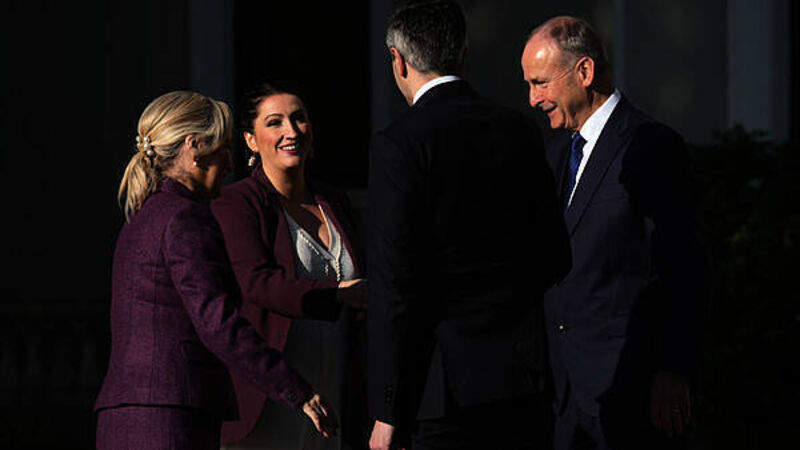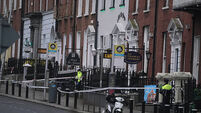Dropping interstate case ‘on the agenda’, Taoiseach says

By Cillian Sherlock, PA
Dropping Ireland’s interstate case against the UK is “on the agenda” of negotiations between the two governments in dealing with legacy issues in Northern Ireland, the Taoiseach has said.
The UK government has put forward new legislation aimed at dealing with the legacy of the Northern Ireland conflict, which has been welcomed by Dublin following extensive engagement.
The original Legacy Act brought by the last Conservative government was opposed by victims’ groups and political parties in Northern Ireland, and it led the Irish government to launch an interstate legal case against the UK, claiming it breached the European Convention on Human Rights (ECHR).
I think it's a moment in time when we can get over the line a comprehensive legacy framework
Taoiseach Micheál Martin has welcomed progress on the matter, telling reporters on Friday that there had been “significant improvement” on the old legislation.
He said the new proposals meet a lot of the concerns articulated by victims’ groups.
Speaking to reporters at the North-South Ministerial Council on Friday, he said: “It is important, I think it’s a moment in time when we can get over the line a comprehensive legacy framework. We’ve been a long time working on this.
“The Irish Government and the British Government are working in harmony on the matter.”
Asked if the Irish Government would drop its case as a confidence-building measure for unionists, he said: “That’s all on the agenda in terms of the negotiations that have taken place.
“The whole context is to have an agreed position between the Irish Government and the British Government in respect of legacy.
“We’ve achieved that, and we have to bring in legislation as well. The UK Government has published its legislation, so we’re making very good progress.”
Mr Harris said the Government is “still analysing” the UK government’s legacy legislation but found it “encouraging”.
“At a first read, it does seem to be true to the Joint Framework Agreement between the two governments.”
On the proposal for the UK government to bring in digital ID cards, Mr Harris said: “There’s a long way to go on this. The British Government has a proposal, again, interestingly, it’s opposed by many parties in Northern Ireland for many different reasons.
“I’m obviously very conscious that anything to do with identity and an identity card and Northern Ireland is extraordinarily sensitive and I’ve had an initial conversation with (Northern Ireland Secretary) Hilary Benn on this.”
Ministers from both sides of the border are discussing a range of issues including emergency planning, business promotion and gender-based violence at the council.
The 30th plenary meeting of the North South Ministerial Council, a body set up after the Good Friday Agreement, was held at Farmleigh House in Dublin.
It brings together ministers from the Government of Ireland and the Northern Ireland Executive twice a year.
The Northern Ireland Executive delegation was led by First Minister Michelle O’Neill and deputy First Minister Emma Little-Pengelly.
Ministers also attended a dinner on Thursday evening.









